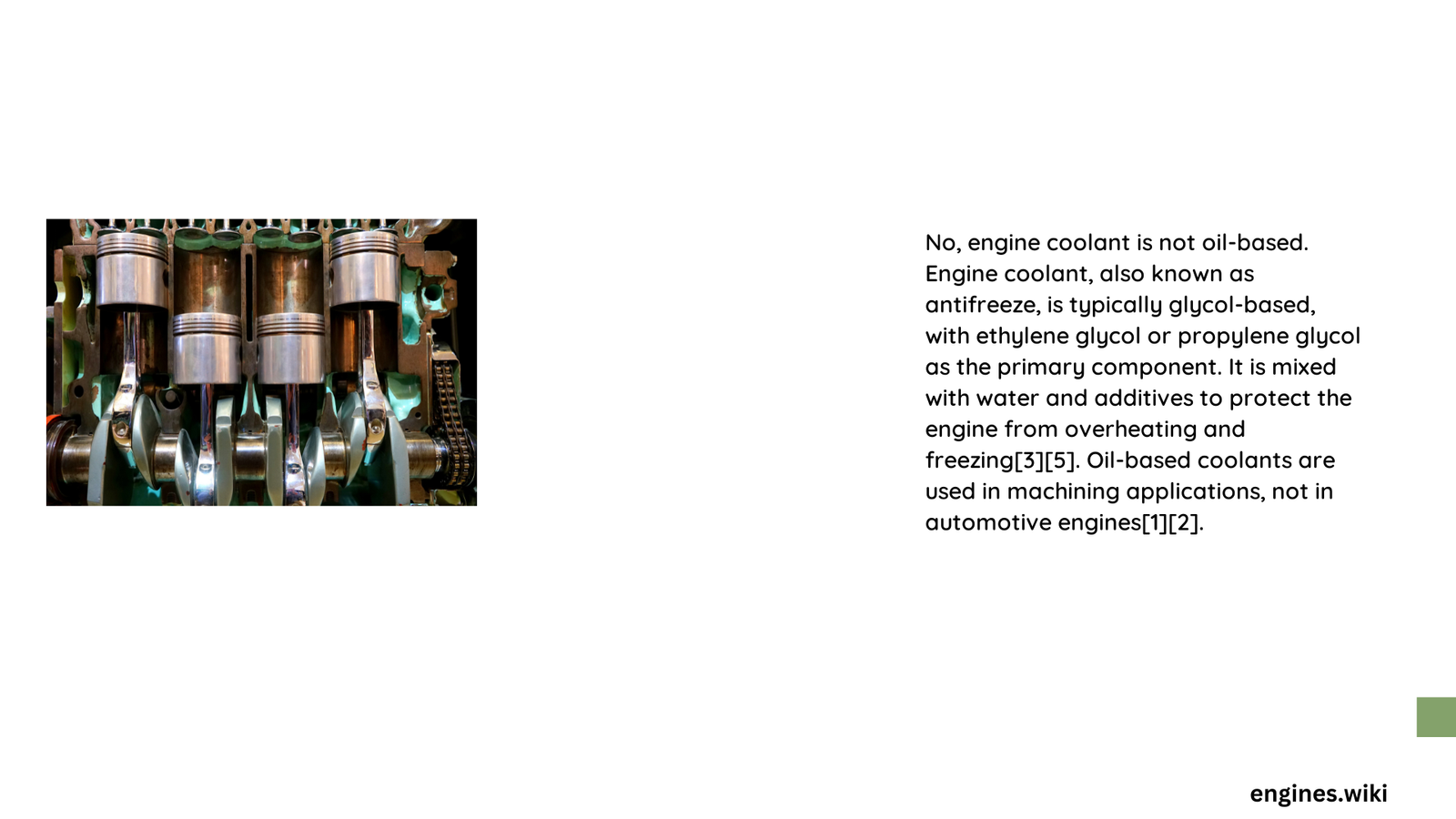Engine coolants are predominantly water-based solutions utilizing glycol compounds like ethylene and propylene glycol, not oil-based. These specialized liquid mixtures are engineered to regulate engine temperature, prevent freezing, and protect against corrosion through carefully balanced chemical formulations that differ significantly from traditional oil-based cooling systems.
What Makes Engine Coolant Unique?
Are Traditional Coolants Water or Oil-Based?
Engine coolants are fundamentally water-based solutions, not oil-based. The primary composition typically includes:
- Glycol Base:
- Ethylene Glycol (EG)
-
Propylene Glycol (PG)
-
Water Mixture:
- 50% glycol
- 50% water
Coolant Composition Breakdown
| Component | Percentage | Function |
|---|---|---|
| Glycol | 50% | Temperature regulation |
| Water | 50% | Heat transfer medium |
| Additives | <5% | Corrosion protection |
Why Not Oil-Based Coolants?
Oil-based coolants present several critical limitations for automotive engines:
- Poor Heat Dissipation
- Less efficient thermal transfer
-
Higher risk of engine overheating
-
Material Incompatibility
- Potential damage to engine components
-
Reduced corrosion protection
-
Temperature Constraints
- Limited operating temperature range
- Increased risk of system failure
Technical Performance Considerations
Thermal Conductivity Comparison
Water-based coolants demonstrate superior thermal characteristics compared to oil-based alternatives:
- Water-Glycol Mixture:
- Operating range: -50°C to 150°C
- Excellent heat transfer properties
-
Consistent performance across temperature variations
-
Oil-Based Coolants:
- Limited temperature tolerance
- Reduced heat dissipation efficiency
- Potential system instability
Specialized Applications
While automotive engines predominantly use water-glycol coolants, specialized industrial applications might utilize oil-based cooling systems:
- CNC Machining
- Hydraulic Equipment
- Specific Industrial Processes
Maintenance and Compatibility
Key Maintenance Recommendations
- Regular Coolant Inspection
- Maintain Proper Concentration
- Follow Manufacturer Guidelines
Potential Risks of Incorrect Coolant Usage
⚠️ Warning Indicators:
– Corrosion of engine components
– Reduced cooling efficiency
– Potential complete system failure
Conclusion

Engine coolants are definitively not oil-based but sophisticated water-glycol mixtures designed for optimal thermal management and engine protection.
Recommendations
- Always use manufacturer-recommended coolant
- Perform regular coolant system maintenance
- Monitor coolant condition and concentration
Reference:
– SAE International Coolant Standards
– Society of Automotive Engineers Fluid Specifications
– Automotive Manufacturers Association Coolant Guidelines
